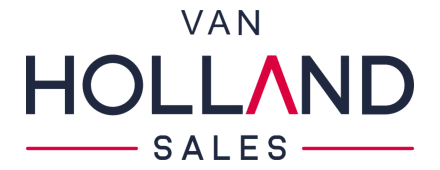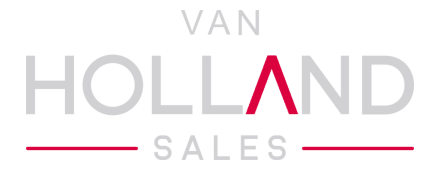

Sales Services
in America
We help your Dutch business set up a reliable sales team in the U.S., from a successful start to growing in the American market.

Research
We help you with market research to identify potential sales channels

Sales Budget
Collaboratively, we identify a realistic budget and determine the key performance indicators (KPIs) that will drive future growth.

Testimonials and Trustworthiness
Working as an extension of your company in Europe requires the right job application procedures and HR management.






What is a sales broker for retail products, for example?
A sales broker, acting as a mediator, links the maker or supplier of a retail product with the selling retail store. They facilitate sales, present the product to the retailer, and enhance its promotion in the store. The broker is responsible for finding and connecting suitable suppliers and distributors for the store. Essentially, sales brokers coordinate suppliers and distributors to streamline operations for the retail store.
Sales brokers for retail products can benefit manufacturers or suppliers needing more resources or connections to sell their products directly to stores. Brokers assist in finding suitable stores and negotiating favorable terms. However, there are drawbacks to using a sales broker for retail products. One major disadvantage is the cost, as brokers typically charge a fee for their services. Additionally, brokers may need a deeper understanding of the culture and values of an organization, potentially resulting in a better match between the product and the store. Organizations may also need more control over the sales process when employing a broker. In summary, a sales broker for retail products acts as an intermediary between the manufacturer or supplier and the retail store. While brokers can be advantageous for those needing more resources or connections to sell directly to stores, drawbacks include costs and reduced control over the sales process.
What are the benefits of using a sales broker for retail products?
Utilizing a sales broker for retail products can offer various advantages for manufacturers or suppliers. Below are some of the most common benefits of using a sales broker:
Established Retailer Relationships: Sales brokers have established relationships with retailers, making it easier to get products into stores.
Market Knowledge: Sales brokers possess market knowledge and can provide valuable insights into consumer trends and preferences.
Reduced Workload: Sales brokers can take on many tasks associated with selling products, such as negotiating with retailers, handling documentation, and reducing the workload for manufacturers or suppliers.
Access to a Broader Network: Sales brokers have access to a broader network of retailers and distributors, helping manufacturers or suppliers reach a larger audience.
Cost-effective: Using a sales broker can be cost-effective for manufacturers or suppliers who lack the resources to sell their products directly to retailers.
Sales Expertise: Sales brokers have expertise in sales and can assist manufacturers or suppliers in developing effective sales strategies.
Increased Sales: Sales brokers can help manufacturers or suppliers increase sales by finding new product markets and customers.
In summary, using a sales broker for retail products can offer various benefits for manufacturers or suppliers, including established relationships with retailers, market knowledge, reduced workload, access to a broader network, cost-effectiveness, sales expertise, and increased sales. Manufacturers or suppliers should consider their needs and resources when deciding whether to engage a sales broker.
Want to boost your retail sales? Contact us now to see how our experienced team can help you reach your goals. Let’s get started together!
Your success is our success.

What is the difference between a sales broker in the U.S. and a traditional distributor?
Sales brokers and traditional distributors handle the sale of products to retailers, but there are some essential differences between the two. Here are a few key distinctions:
Sales Broker
- Establishes seamless communication between the product manufacturer or supplier and the retail store actively selling the product.
- Assists in generating leads for the sale of high-value products.
- Reduces excessive work by handling all the documentation to finalize the deal.
- Secures the right price for the product by taking a percentage commission on the sale price.
- Provides authentic deals by bringing an approved buyer to the table.
- Reduces sales and distribution costs by making distribution costs more economical.
- Exclusively represents the seller and ensures the maximum sale of products.
Traditional Distributor
- Distributes the product directly to end users, such as buyers for a theater chain, a PayTV channel, or a VOD platform
- Brings products to retailers and arranges the sale, shipment, and service of products to retailers in a specific geographic area or trade class.
- Distributes products to retailers and is responsible for inventory control at the store level.
- Earns compensation by taking a percentage from the selling price
- Providing a comprehensive suite of services, including sales, billing, and inventory control for products at the store level.
While both sales agents and traditional distributors are involved in selling products to retailers, there are some critical differences between the two. Sales agents act as intermediaries between the manufacturer or supplier of a product and the store selling it. In contrast, traditional distributors bring the product to the retailer and coordinate product sales, shipment, and service to retailers in a specific geographic area or trade class.
Do you want to learn more about how a sales agent can help boost the sales of your retail products? Contact us today and discover the benefits of collaborating with our experienced sales agents. We are ready to elevate your sales strategy to new heights!

Why should you use a sales broker to enter the American market?
Using a sales broker to enter the American market can benefit manufacturers or suppliers. Below are some of the most common advantages of employing a sales broker:
- Established Retailer Relationships: Sales brokers have established relationships with retailers, making it easier to get products into stores.
- Market Knowledge: Sales brokers possess market knowledge and can offer valuable insights into consumer trends and preferences.
- Reduced Workload: Sales brokers can take on many tasks associated with selling products, such as negotiating with retailers and handling documentation, thereby reducing the workload for manufacturers or suppliers.
- Access to a Broader Network: Sales brokers have access to a broader network of retailers and distributors, assisting manufacturers or suppliers in reaching a larger audience.
- Cost-Effective: Using a sales broker can be cost-effective for manufacturers or suppliers needing more resources to sell their products directly to retailers.
- Sales Expertise: Sales brokers have expertise in sales and can help manufacturers or suppliers develop effective sales strategies.
- Increase in Sales: Sales brokers can assist manufacturers or suppliers in increasing sales by finding new markets and customers for their products.
- Reduced Risk: Sales brokers can help manufacturers or suppliers mitigate the risks of entering a new market by providing guidance and support.
- Faster Market Access: Sales brokers can help manufacturers or suppliers gain quicker access to the American market by leveraging their relationships with retailers.
Using a sales broker to enter the American market can offer various advantages for manufacturers or suppliers, including established relationships with retailers, market knowledge, reduced workload, access to a broader network, cost-effectiveness, sales expertise, increased sales, reduced risk, and faster market access. Manufacturers or suppliers should consider their specific needs and resources when engaging a sales broker.
Do you want to benefit from these advantages and successfully launch your retail products in the American market? Contact us today and discover how our experienced sales brokers can assist you in achieving your goals. We offer customized solutions and are ready to elevate your brand to new heights!
Guideline Prices
Prices
Break into the market with the right strategy!
Starting prices listed do not include taxes.
Broker Service
Fixed Fee + Commission
- High End Contacts
- Contract Negotiations
- Relationship Management
- Percentage of sales

Van Holland Sales Inc.
Feel free to contact us.
Call Miami at + 786 2326384
Other Options
Strategy
Plan + System
- Customer Needs
- Sales Strategies
- Selling Techniques
- Revenue Objectives
Sales Rep
Base Fee + Commission
- Follow-up on Leads
- Customer Interaction
- Hybrid Work Environment
- Percentage of Revenue
Fractional Sales Team
Extension of Your Business
- Lead Generation
- Appointment Setting
- Product Specialists
- Sales Reps & Closers


